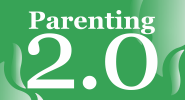Modern Families
Once upon a time, not so very long ago, the word family in the US conjured up a visual of mom, dad and two and a half biological children. Yes the half was always a bit challenging – and good preparation for the definition of “family” today. Ask any person on the street to describe their “family” and you will get a myriad of additional responses: “single parent homes,” “step parents and step children”, “adopted children,” “foster children,” and “same gender parents.”
As complexity increases so too do the challenges. When not properly respected and proactively addressed, family problems become societal problems. No one lives in isolation. If a neighbor’s child struggles and ends up committing a crime, your taxes will be utilized to prosecute that child. Every adult – whether a parent or not – has a role in raising humanity.
Consequently, families today are attracting heightened press and societal attention. Bright lights do not only reveal the problems you seek to find, they expose issues long hidden. “Do as your parents did unto you” and “Children learn what they live” are now revealed as the impossibly, impoverished educational paradigms they have been for decades. Institutions that previously processed human beings like so many crayons in a box – shunning those whose uniqueness challenged their constructs – are cracking. Child abuse, molestation, poverty, human trafficking and starvation, can no longer be written off as “someone else’s problem”.
Although the world is full of suffering, it is also full of overcoming. Helen Keller
All of this brings us to the one constant. Regardless ever changing cultural norms and composition, families are universal and remain a primary classroom for children. Their success around the planet is critical to all of us. So thank goodness for the passionate ones, the courageous, the can-do, the caring – people like Rhonda Sciortino. Rhonda endured severe poverty and physical abuse as a child and today teaches others to “Succeed because of what you’ve been through.”
As Rhonda and others who have travelled the journey over centuries have learned – and modern work in neuroscience and trauma now confirm – far from being “forever damaged” human beings are only as limited as their educators. Life skills benefit from the same things as academics: wisdom of third party instructors optimistic of children’s success, practice over years, and appreciation that failure is an essential part of any learning process. Children who take the harder classes in the mandatory curriculum of surviving and communing with others, and have exceptional teachers, end up becoming humanity’s curriculum scholars.
Editor’s Note: This blog is dedicated to the Parenting 2.0 humanitarians that volunteered to serve as Thought Leaders for the Modern Family Panel at P20 Talks 2012: Rhonda Sciortino, Dr. Pilar Placone, Dr. Jeannine Zoppi, Jeff Everage and Diana Sterling. P20 Talks made history by gathering professionals across multiple professional fields and continents to illuminate Life Skills as distinct, foundational skill sets critical to thriving and teachable by third party educators.
